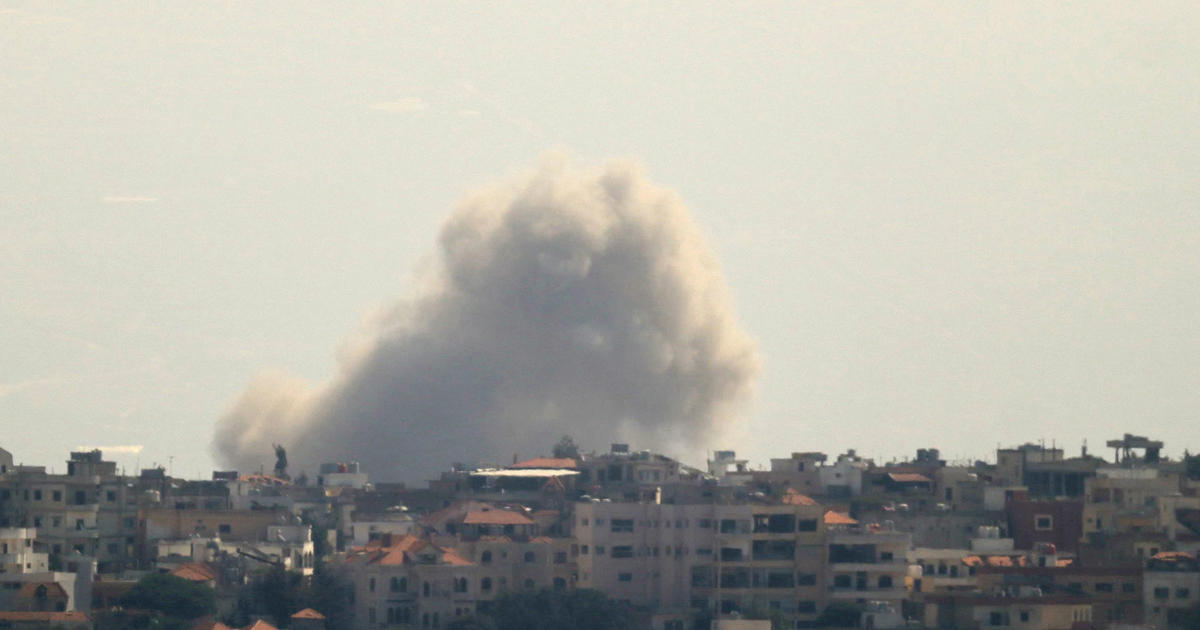The recent deployment of a U.S. Terminal High Altitude Area Defense (THAAD) anti-missile system to Israel highlights the escalating tensions in the Middle East and the complex relationship between the United States, Israel, and Iran. This move, authorized by President Biden, signifies a significant escalation in the provision of military support to Israel amid a heightened threat of Iranian missile attacks. The deployment includes approximately 100 U.S. troops to operate and maintain the system, showcasing a direct and visible commitment from the United States to bolstering Israel’s defense capabilities. This deployment is not a new phenomenon; the U.S. has provided THAAD systems to Israel in the past, but this deployment carries heavier implications given the current geopolitical climate. The decision underlines the perceived severity of the threat and the U.S.’s unwavering support for its ally amidst the ongoing conflict.
THAAD Deployment: A Show of Force and Strategic Alliance
Strengthening Israel’s Defenses Against Ballistic Missiles
The primary objective of deploying the THAAD system is to enhance Israel’s ability to defend itself against potential ballistic missile attacks from Iran. The system’s advanced capabilities offer a crucial layer of defense against incoming projectiles, adding significantly to Israel’s existing air defense network. This strategic move aims to deter further Iranian aggression and provides Israel with a critical edge in responding to potential attacks. The deployment follows recent Iranian missile barrages targeting Israel, escalating tensions to a critical level. The THAAD system is positioned to intercept a wider range of missiles, expanding Israel’s capability to protect its citizens and infrastructure from long-range threats. The United States’ decision to deploy its own troops alongside the system also speaks to the seriousness of the perceived threat and the level of commitment to Israel’s defense.
U.S. Military Personnel and Operational Aspects
The deployment of approximately 100 U.S. troops alongside the THAAD system marks a significant commitment of military personnel to Israel’s defense. These personnel are crucial to the successful operation and maintenance of the complex THAAD system. Their presence not only provides technical expertise but also demonstrates a visible and tangible U.S. commitment to Israeli security. This action transcends mere material support; it demonstrates an active military partnership in the face of a significant threat. The full operational capabilities of the THAAD system are anticipated within a short timeframe, although specific timelines are not publicly disclosed for security reasons. The advance team’s arrival and the phased deployment of personnel and equipment reflects a carefully planned and coordinated operation, designed to minimize disruption and maximize effectiveness.
Geopolitical Implications and Rising Tensions
The Iran-Israel Conflict and Regional Instability
The deployment of the THAAD system comes amid an already volatile geopolitical climate in the Middle East. The recent attacks by Iran on Israel, and Israel’s ongoing conflict with Hamas, highlight the regional instability and the heightened risk of escalation. The move demonstrates a potential for an even larger conflict drawing other regional and global actors, while also further complicating existing alliances. The presence of U.S. troops directly supporting Israel’s defenses potentially raises the stakes and increases the possibility of wider military confrontation. Any miscalculation or accidental engagement has the potential for wider-scale conflict, turning the already fragile situation into a full blown crisis with international implications.
Iran’s Response and Potential Escalation
Iran has responded to the THAAD deployment with strong words, warning the U.S. against involvement in the conflict and expressing concern about the risk to U.S. troops operating in Israel. The possibility of further Iranian escalation is a considerable factor and has to be carefully considered, in the current context. Their warnings should be interpreted seriously; given their recent actions, there’s cause for concern. However, such warnings serve a dual purpose: they are directed at the United States, but are also aimed at the internal audiences and designed to mobilize support, and increase morale during challenging periods for the state. The situation requires careful diplomacy and restraint on all sides to prevent a potential further intensification of the conflict.
U.S. Commitment to Israel and Broader Strategic Interests
Ironclad Commitment and the Defense of Israel
The U.S. deployment of the THAAD system underscores President Biden’s administration’s repeated assertion of an “ironclad commitment” to Israel’s security. This commitment goes beyond symbolic statements, signifying a concrete and significant contribution to Israel’s defense capabilities. This strategic partnership between the U.S and Israel transcends short-term geopolitical shifts. Both states perceive Iranian capabilities and actions as a major regional destabilizer. This reinforces a longer term strategy of regional balance-of-power that aligns U.S and Israeli interests. This commitment reflects long-standing relations as well as current interests which often overlap substantially.
Protecting U.S. Interests and Regional Stability
The U.S.’s involvement in the region is not solely motivated by support for Israel. Protecting American interests in the region, including the safety of U.S. citizens in Israel, plays a pivotal role. The involvement and investment of U.S. resources underscores the potential wider impact of instability within the region to American security concerns. Maintaining regional stability and deterring the proliferation of weapons of mass destruction by Iranian actors is equally as relevant and falls directly within US strategic interest. Thus, supporting Israel represents a way of simultaneously accomplishing those national objectives, thereby achieving mutually compatible and beneficial foreign policy outcomes.
Takeaway Points:
- The deployment of the THAAD system to Israel represents a significant escalation in the U.S. commitment to Israel’s defense against Iranian missile threats.
- The deployment includes U.S. military personnel, underscoring a direct and active military partnership.
- The move comes amidst heightened regional tensions, highlighting the potential for further escalation.
- Iran’s response indicates the significant impact of the U.S.’s action, increasing the potential for regional instability.
- The U.S. action reflects its long-standing commitment to Israel and its own strategic interests in regional stability and counter-terrorism.




